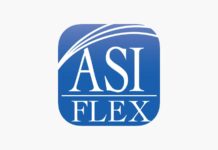VA Benefits Honorable Discharge: A veteran’s type of discharge is very important in deciding if they can get VA benefits. Usually, veterans who were discharged under honorable or general conditions can receive these benefits. But even if someone has a less-than-honorable discharge, like bad conduct or other than honorable, they might still be able to get benefits depending on how the VA views their discharge.
A new rule, starting on June 25, 2024, will make it easier for more veterans to qualify for benefits, even if their discharge wasn’t the best. This rule will help more veterans with less favorable discharges access the benefits they need. Significant changes are made by this new rule, such as the removal of restrictions on “homosexual acts involving aggravating circumstances.” Also, it adds a “compelling circumstances exception” that might let more soldiers with less-than-honorable discharges get benefits. Importantly, this change also lets people who were turned down for benefits before applying again under the new rules.
VA Medical Benefits Eligibility: Discover the Income Limits for Veterans to Qualify for Health Care
It’s critical to realize that the VA does not change the military’s initial discharge status; rather, it uses the character of discharge determination only to determine eligibility for VA benefits. Essentially, the VA is evaluating whether the service member is eligible for VA benefits and services based on the specifics of their military discharge rather than redefining their military discharge.
It is advised that veterans who were discharged for “under other than honorable” or “bad conduct” apply for VA compensation. To determine if they fulfill the qualifying requirements, the VA will carefully examine the particulars of their discharge. In order to determine if the service member’s discharge was under circumstances that would permit benefits, the VA looks at the “character of discharge”. Honorable discharges are automatically exempt from this requirement.
You may be able to get disability benefits if you have signs of an illness that started within a year after you were discharged from active military service —even if they weren’t there while you were serving. Here’s how: https://t.co/XHeH7Uw1tW pic.twitter.com/FsyGWDVebg
— Veterans Benefits (@VAVetBenefits) August 27, 2024
VA Benefits Honorable Discharge: What if you don’t get it?
Nonetheless, certain discharges—such as those brought about by general court-martial penalties, protracted AWOL periods, or desertion—are regarded as statutory barriers to benefits, unless the veteran was declared out of control at the time of the offense. Certain VA regulations also list additional conditions, like deliberate misbehavior or moral turpitude, that may exclude enrollment.
Chapter 33 VA Benefits Payment: How can VA Chapter 33 help you?
If a veteran gets a dishonorable discharge from one period of service, that doesn’t mean they can’t get benefits for another period of good service. Veterans who did not get an honorable release may still be able to get some VA health care benefits, especially if they have a disability that was caused by their service.
Did you know you can file a pre-discharge claim? Learn more: https://t.co/fFILZ90QKH pic.twitter.com/dZMky9Hdko
— Veterans Benefits (@VAVetBenefits) August 25, 2024
The VA doesn’t look at a veteran’s character after discharge until they ask for benefits. There are different ways for veterans to file claims with the VA. Once the claim is received, the VA does a thorough review by getting relevant military service records and looking at any evidence the veteran gives. This thorough evaluation checks to see if the veteran’s release was for a reason other than dishonorable, which means they can get VA benefits.




